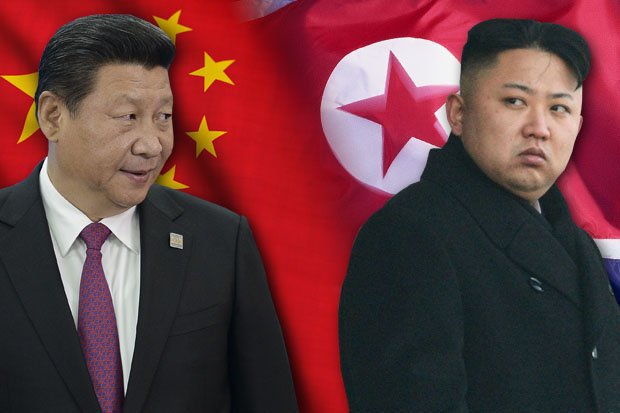
On the morning of September 14, 2017, North Korea fired a long-range ballistic missile over northern Japan. Travelling over the Pacific ocean, the missile flew 3,700 kilometers before reaching its target. Before this attempt, North Korea successfully launched another missile over Japan that flew 2,735 kilometers towards the Pacific. According to a report broadcast by North Korea’s KCNA state news agency on September 16, Kim Jong-un’s aim is to level the game with the United States with regards to military power. However, the message that Kim Jong-un was really trying to put across was: "if you threaten us we will bomb Guam island."
Guam island is located at a distance of 3,700 kilometers from North Korea. The last missile fired from North Korea is capable of traveling the same range. Why is Guam island significantly crucial for the United States? Guam island is strategically important due to its location in the Pacific, and hence for this reason is used by the United States of America as an army base. There are about 7,000 American soldiers on this island and it is home to roughly 160,000 people. On top of this, this little Pacific island houses strategic US bomber planes and US navy ships. North Korea to date has conducted 13 missiles trials so far. Among these, the ones that have gotten the most attention were the six nuclear weapon tests. Japan's Sanke Shimbun newspaper article published on January 6 states that according to Japan's Defence Minister the hydrogen bomb fired by North Korea on September 3 is eight times stronger than that dropped on Hiroshima. In the 1970s North Korea could only boast of artillery shells that can reach up to 200 kilometers. On November 12, 2010, after an artillery confrontation between South and North Korea, the North Korean Defence Minister Kim Tae-rong declared that they had 1000 missiles, with the longest ranged missiles able to reach a distance of 1,000 kilometers. So, what changed in this short period that allowed the embargo-clamped North Korea to gain ownership of advancements of technology to develop both short and long-range nuclear missiles?
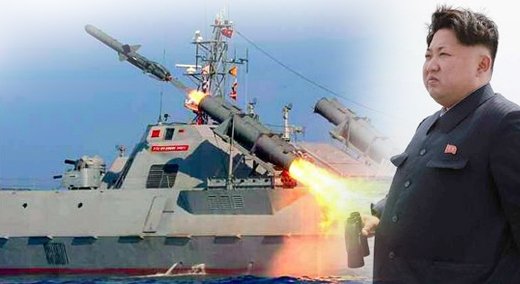
Who has been giving the closed box North Korea the secrets of nuclear technology?
China first handed their developed nuclear technology to its close ally Pakistan in 1982. Later, this same technology was given to North Korea through Pakistan. The apparent orchestrator of this transaction was the founding father of Pakistan”s own nuclear bombs program, the world’s most notorious nuclear arms smuggler and the seller of atomic bomb secrets to Iran, which is currently under the radar of the United States. Who am I referring to? Abdul Qadeer Khan, of course. Pakistan’s famous nuclear scientist Abdul Qadeer Khan was arrested in January 2004 by the Pakistani government and sent to prison. During this time, Mr. Khan wrote an 11-page memoir, which he managed to get out of jail with the aid of his visiting wife. In his memoirs, Mr. Khan writes:”I asked the Chinese authorities for 50 kilograms of enriched uranium, enough to make two nuclear bombs. Upon these instructions, the Chinese authorities gave us the blueprints to the nuclear bomb we were going to make, and with these maps they included 50 kilograms of enriched uranium. Hence in the year 1982, I left in an unplanned manner from the capital city of the region inhabited by Muslim Uyghurs, Urumqi, with these important instructions on a C-130 that belonged to the air force.
Between the years of 1999 to 2008, first as the prime minister and later as the president, Pervez Musharraf mentioned the transfer of nuclear technology to North Korea in his book "Memoirs of Musharraf." He states in his book: "In the year of 1999 I received a secret report from nuclear scholar Dr. Abdul Qadeer Khan. This report suggested that North Korean nuclear experts, under the guise of missile engineers, had arrived at KRL and were being given secret briefings on centrifuges including some visits to the plant and that they were even given top secret information on uranium richening centrifuges. The results showed that the famous nuclear physicist Prof. Dr. Qadeer Khan had other than North Korea also provided top secret information by illegal means to Iran since 1987." [3] Although Dr. Abdul Qadeer Khan is based in Dubai, North Korea received P-1 and P-2 types centrifuges, measuring instruments and the oil needed for the uranium richening centrifuges. In one of his speeches Dr. Mohamed ElBaradei, the Director General of The International Atomic Energy Agency, said Pakistani nuclear physicist Dr. Qadeer Khan was only a pawn in the international platform to illegally pass on nuclear technology information for North Korea. Dr. Qadeer’s special connection with China was no longer a secret for anyone.[4]
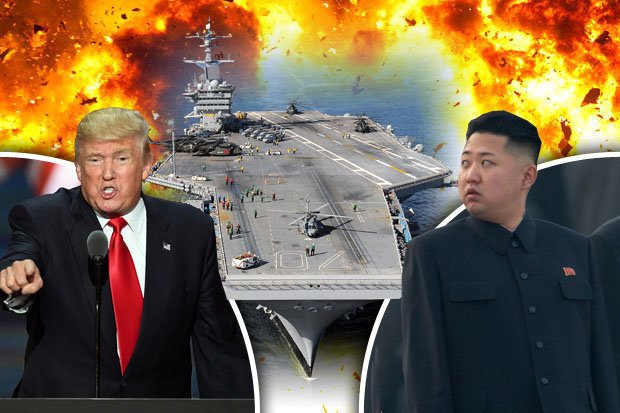
Washington believes Beijing will keep its word. Pyongyang on the date of April 10, 2003, announced that they will withdraw from the Treaty on the Non-Proliferation of Nuclear Weapons. The White House’s reaction to this decision was an announcement of severe condemnation. In order to decrease the escalating crisis, North Korea is willing to engage in talks with Washington. The same day, the US president George Bush telephoned China’s president Jiang Zemin. His message was that the US aim is not to become enemies with North Korea and that they have suggested a peaceful resolution instead. Ari Fleischer, a White House representative, quoted Jiang Zemin's promise that "China is committed to a nuclear-free Korean peninsula”. The White House believed that a nuclear-free Korean peninsula is also beneficial to Chinese interest hence their choice to believe in Beijing's promise. At the same time, the White House knew that any war with North Korea would create an influx of refugees, which is a big issue for China. Therefore they were pursuing a balanced policy, but they were wrong to believe that China will keep its promise. The United States was distracted with its trust of China. North Korea announced on October 9, 2006, that they had successfully proceeded with their first nuclear attempt underground. The second underground atomic bomb test was on 21 April 2009, and the third underground nuclear bomb test was on 12 February 2013. North Korea’s first hydrogen bomb test was on 6 January 2016. International news agency however only reported that North Korea had an earthquake. The fourth underground atomic test was carried out on September 9, 2016. Within less than a year on the date of September 3, 2017, North Korea was able to explode two underground hydrogen bombs. World news agencies including those in Turkey only broke the news of a 6.3 magnitude earthquake that hit North Korea. Meanwhile, despite all of the civilized world’s warnings, condemnation from the United Nations and the United Nations’ embargoes, North Korea continues to test long and short-range nuclear missiles. US sanctions on ambiguous Chinese business firms did not result in the desired impact. North Korea completed its fifth nuclear test on 8 September 2016, soon afterwards, on 19 September 2016, in a high-level meeting during the 71st session of The UN General Assembly, then-US President Barack Obama spoke privately with China's prime minister Li Keqiang. In this private meeting, Obama asked that the Chinese government stops any contribution towards North Korea’s nuclear weaponry. This included a presentation of a folder containing evidence that Chinese firm Hongxing and its CEO Ma Saohong provided raw materials needed by North Korea for nuclear weaponry development. Beijing immediately closed down Hongjiang. Even so, other firms started filling in for the logistics needed by North Korea. US president Donald Trump, on April 6 and 7, hosted the president of China Xi Jinping. On Twitter, he announced a few statements about his meeting saying "tremendous progress" had been made in talks with President Xi and that “lots of very potentially bad problems will be going away.” Xi would not be able to keep his promises.[8] China this year decided not to accept the decision of the United Nations of not supplying North Korea with coal, iron ore, sea products, etc. On the contrary, as can be seen every day along the Yalu river, both legal and illegal trade flowing in both directions shows China’s closed-eye policy indicating that it has a very different viewpoint than the US. Donald J. Trump, as if to authenticate the above statement, on September 5, 2017, wrote on his Twitter account: "Trade between China and North Korea grew almost 40% in the first quarter. So much for China working with us - but we had to give it a try!"[9] The Chinese government in the first quarter of this year had to acknowledge that their trade with North Korea increased 37.3 percent.[10]
Why is Washington hardening its stance on Beijing while softening up on Pyongyang?
US Secretary of State Rex Tillerson, speaking at a State Department press briefing, said: "We do not seek regime change. We do not seek an accelerated reunification of the peninsula extending in a way an olive branch to Pyongyang.” This time, however, Washington's attitude towards China harshened. US president Donald Trump on 29 July tweeted with this clear statement: “I am very disappointed in China. Our foolish past leaders have allowed them to make hundreds of billions of dollars a year in trade, yet...they do NOTHING for us with North Korea, just talk. We will no longer allow this to continue."[12]
The United States applied embargo restriction on companies in China including finance firms that contributed to the advancement of nuclear technology in North Korea by direct and indirect contribution. Also, the United States Treasury applied sanctions on June 2017 on a Chinese bank, a shipping company and two Chinese citizens.
President Trump in 2016 said the United States’ trade deficit with China totaled 347 billion. He underlined that this unequal trade is going to be put to an end. The White House warned that the North Korean nuclear problem is a Chinese problem.[13]
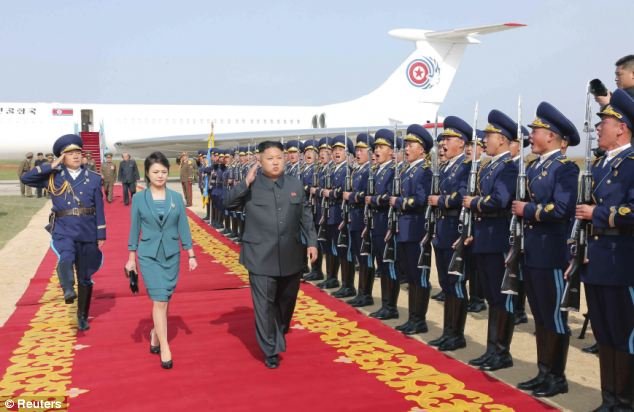
Can a North Korea survive without China?
China is an essential ally of North Korea, their biggest trade partner and their main food and energy source
Since the war, China has economically and politically supported North Korean leaders: Kim II-sung (1948-1994), Kim Jong-il (1994-2011) and Kim Jong-Un (2011 -present)
Even with the unbearably heavy pressure of the international communities, North Korea within this year has made tremendous advancement in short and long-range missile technology, including in its research. In the first six months, three incredible advances of this technology is not only intriguing but also a very questionable situation.
These successful technological advances of North Korea make one question if it is indeed their technology, or is it China giving them these technologies, or are there Chinese military spies acting like North Korean citizens coming to help and evolve North Korean missile technology? The US and Japan must have intel on these matters.
Washington's strict attitude on Beijing is a concern to China. Recently in the United Nations, China also approved the decision to implement severe embargo restriction on North Korea. However, North Korea gets 90% of its daily food, textile, medicine.. etc. and other consumer goods directly from China, as well as their petroleum needs. Bilaterally China receives from its neighbor minerals, sea products and clothing. In the first quarter of 2017, China's trade with North Korea increased 37.4% compared to 2016. China is not only right now North Korea’s sole economic supporter but also North Korea's lifelong ally. Under normal circumstances, a third of the trade between these two countries is made by Chinese expats hired by North Korea. However, recently North Koreans with Chinese ancestry are moving back to China and obtaining citizenship. Even so, there are still 10,000 to 15,000 Chinese living in North Korea. They are able to stay there with the special permission given to them by China's ministry of interior affairs. They can cross the borders between the two countries without being impeded. With this prestige given to them, these people are drilling through the embargo restriction hence enabling illegal trade between China and North Korea.[14]
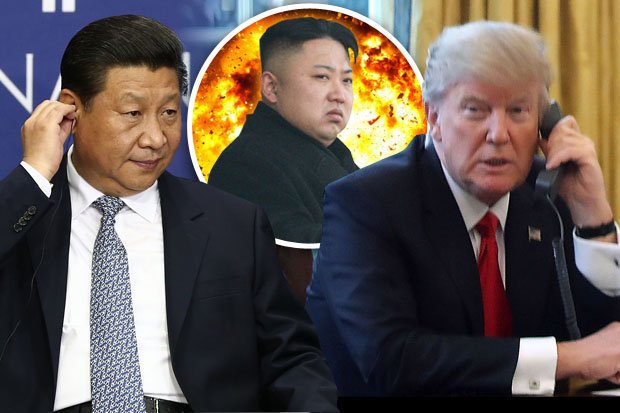
Accordingly, the trade between China and North Korea has gradually increased. Trade in 2014 between these two countries was already 6.86 million dollars. As stated by the Korea Trade-Investment Promotion Agency based in Seoul, the data shows that trade between China and North Korea increased tenfold between the years of 2000 to 2015. On September 2015, North Korea, to increased its exports of coal to China, opened a container shipping export company in the Chinese city of Dandong and opened an expressway railway to Shenyang, China.
Dandong is a significant trade, investment, and tourism center for both countries. 40 percent of goods sold in North Korea comes from international sources, and 70% of export and imports go through Dandong and Shenyang.
Even when one takes all this into account, in the year 2014 there was a plan to open a 350 million-dollar bridge on the Yalu river. As if in agreement to tell the United Nations and the US that China and North Korea are cooling off their relationship, the bridge was left untouched.
Human rights groups are condemning Beijing's promise to send back North Korean refugees.
Between the years of 1950 and 1953, during the Korean war, China not only sent 300,000 soldiers but Mao himself sent his eldest son Mao Anying, creating a sense of brotherhood between North Korea and China. Hence, assuming that this partnership is easily breakable is naivety. The truth is this ideology and strategic partnership has not been affected over the years and remains unchanged.
Is China going to hand over North Korea to the US, or are they going to join forces with the US? Perhaps they will enter into a struggle of power over East Asia with the US? Or is this monster created by China going to strangle China's by the neck by starting a missile war in Asia? These are one of many topics I wish to discuss further in my future blogs.
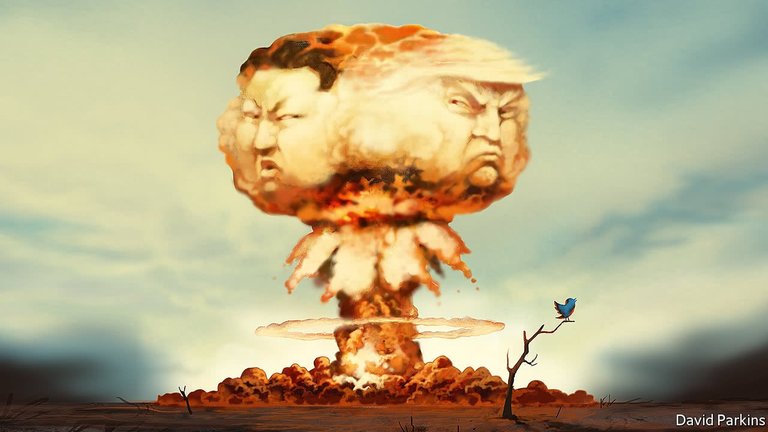
Hi! I am a robot. I just upvoted you! I found similar content that readers might be interested in:
http://www.21yyte.org/en/arastirma/kuzey-kore/2017/11/02/8731/how-did-an-isolated-north-korea-gain-to-access-advanced-nuclear-technology
you have committed a violation please do not repeat again